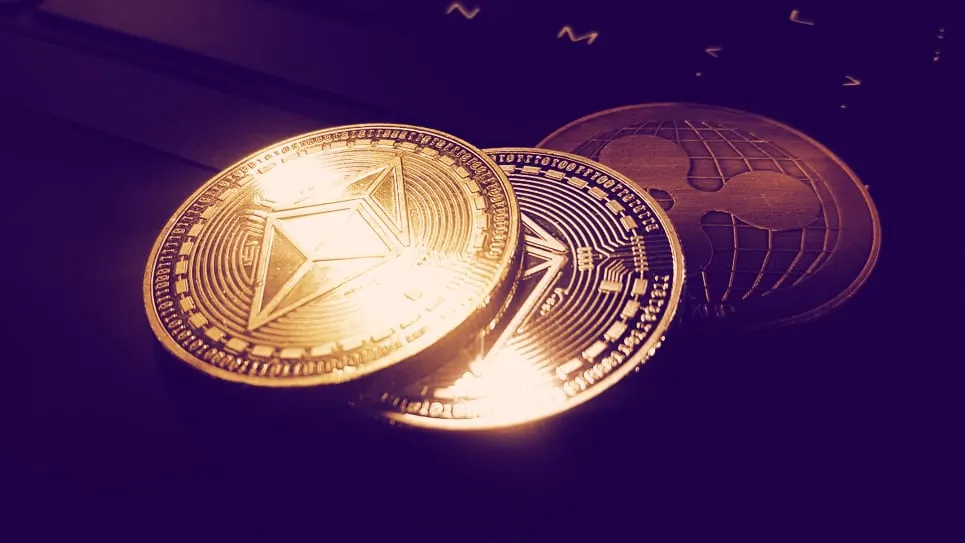In brief
- An Ethereum user made a mistake when sending a transaction on the Ethereum blockchain.
- They accidentally raised the transaction fee to $9,300.
- They are asking miners to give the money back—but they are not required to do so.
An Ethereum user accidentally spent $9,300 in transaction fees to send just $120. They are now calling for miners to altruistically give the money back—although they are no requirements for them to do so.
A pseudonymous account known as “ProudBitcoiner” posted their experience on Reddit, posting a link to the transaction to verify it. The Ethereum user said they erroneously typed in the wrong transaction fee while trading—accidentally spending 23 Ethereum (ETH). Transaction fees are paid in “Gas” and numbered in “Gwei,” a system that can be unfamiliar and confusing to use.

The transaction was made through MetaMask, a popular in-browser Ethereum wallet, while the user was using the Uniswap exchange to swap tokens. It was scooped up by mining firm Ethermine in under 30 seconds (miners tend to prioritise transactions with higher transaction fees).
“Metamask didn't populate the "Gas Limit" field with the correct amount in my previous transaction and that transaction failed, so I decided to change it manually in the next transaction (this one), but instead of typing 200000 in "Gas Limit" input field, I wrote it on the "Gas Price" input field, so I paid 200000 Gwei for this transaction and destroyed my life,” the user explained.
Fund transfers on the Ethereum network require a Gas fee to be inputted before any transaction. These are then paid to miners—entities who run powerful computing machines to keep a blockchain network running.
A Gas “limit” is the maximum amount of Gas that a user is willing to pay per transaction, while the Gas price is the amount of Gwei a user can spend on each unit of Gas. Together, the limit and price combine to set the fees per transaction on the Ethereum network and change continually based on network demand and activity. Hence the confusion.
For reference, data from tracking site ETH Gas Station shows that Ethereum fees are currently quoted at only around 24-33 Gwei per transaction, a fraction of what ProudBitcoiner ended up paying to Ethermine yesterday.
Meanwhile, the user is now trying to get some of the lost fees back. “I contacted Ethermine on Twitter, I contacted their CEO Peter Pratscher on Twitter, I made this post here … I am out of ideas,” they said in a post.
Ethermine, on its part, has not yet responded to requests made by the Reddit user and are not obliged to. Any typos during crypto transactions are final in nature, and miners would only hand their earnings back if they want to do so.
Despite that, ProudBitcoiner is still not losing hope. “Ethermine, because they mined the block my transaction was part of and it's their goodwill if they want to return this or not,” they added.
The firm’s parent company, BitFly, faced a similar conundrum earlier this year when someone paid over $2.6 million in ETH as part of transaction fees in a block mined by Ethermine. However, BitFly pocketed the money after holding the funds for four days and stated any similar issues in the future will not be subject to any investigation or refund.
Also we would like to make clarify that in the future we will no longer interfere in the payout of large tx fees. Our advertised payout policy is to always distribute the full block reward and we will be sticking to that independent on the amount involved.
— Bitfly (@etherchain_org) June 15, 2020
Looks like being one’s own bank does come with much greater responsibility.

